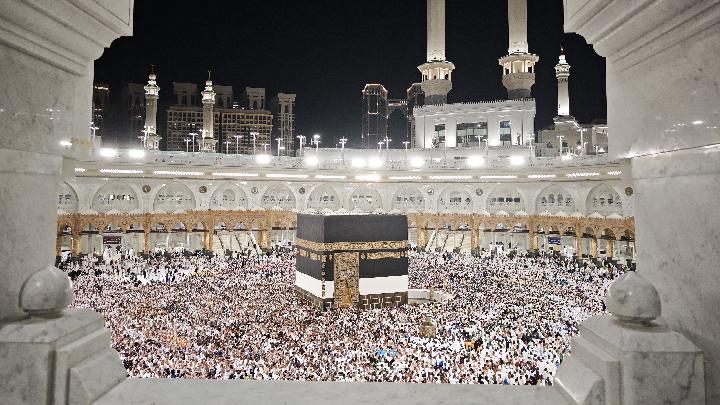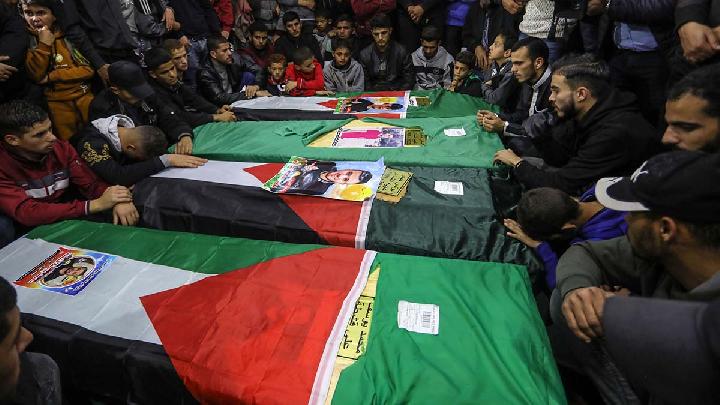FRANCE is actively pushing several European countries—including the UK, Belgium, and the Netherlands—to officially recognize the statehood of Palestine at the United Nations (UN) conference scheduled to take place next month, Middle East Eye reported.
The conference, initiated by France and Saudi Arabia, will feature eight roundtable discussions aimed at producing an "action-oriented document" focusing on peaceful resolutions to the issue of Palestine and the implementation of a two-state solution.
Recognition of the Palestinian State
A French diplomat, speaking on conditions of anonymity to Politico, revealed that President Emmanuel Macron hopes that the collective declaration at the conference will serve as a catalyst to revive stalled peace negotiations between Israel and Palestine.
According to the diplomat, the two-state solution has become more critical than ever, yet "more undermined than ever," given the ongoing war, displacement of Palestinian civilians, and violence by extremist settlers.
Macron's vision is that the recognition of the Palestinian state at this conference can be balanced by several Arab nations giving formal recognition to Israel. However, another European diplomat informed Politico that, at present, Arab nations are more interested in seeing sanctions imposed rather than pursuing statehood for Palestine.
He actively lobbied European countries—including the UK, Belgium, Portugal, and Luxembourg—to acknowledge the statehood of Palestine at the summit, viewing it as a way to revitalize peace negotiations and oppose the expansion of Israeli settlements in the occupied West Bank.
Malta has pledged to recognize Palestine at the summit, with its Prime Minister condemning the worsening humanitarian crisis. France, Canada, and the UK have collectively criticized Israel's war in Gaza and declared their commitment to recognizing the state of Palestine as a step towards peace.
Currently, 147 out of the 193 UN member states recognize Palestine as a country. Last year, Spain, Ireland, and Norway joined the list of European countries that agreed to recognize the statehood of Palestine.
Israel Fears France's Moves
Israel strongly criticized this move, arguing that recognizing Palestine is the same as rewarding armed Palestinian factions.
The New Arab reported that Israeli officials are increasingly concerned that the upcoming UN conference on the two-state solution, sponsored by France and Saudi Arabia and scheduled for 17-20 June in New York, will lead many countries to formally recognize the State of Palestine.
They fear that this move is quietly supported by the United States as a way to pressure Israel to stop its war in Gaza, which has killed over 54,000 Palestinians and has been widely condemned by the international community.
Israel vehemently opposes this recognition effort and warns that it may trigger further annexation of the West Bank. Israeli officials, including Ambassador Danny Danon, collaborated with the US to block France's initiative and prevent other countries from supporting Palestinian statehood at the conference.
Relations between Israel and the US have been tense recently, with Washington directly engaging with Hamas without consulting Tel Aviv, further complicating the diplomatic landscape.
France Threatens Sanction Against Israel
France, like the US and Germany, is a supporter of Israel. However, Israel's actions in Gaza prompted France to issue its strongest warning to date.
Macron, quoted by Al Jazeera, has warned that France may impose sanctions on Israel if Tel Aviv does not adequately address the deteriorating humanitarian crisis in Gaza. Speaking during his visit to Singapore, Macron emphasized that the ongoing blockade has created an unsustainable situation in the field, with Palestinians facing the risk of severe hunger and starvation.
He stated that if there is no adequate response in the coming hours and days, France and its allies need to strengthen their collective stance, potentially including sanctions against Israeli settlers.
Macron also called for an end to the assumption that Israel respects human rights in Gaza, expressing hope that the Israeli government will change its stance to enable an appropriate humanitarian response.
Furthermore, he emphasized that recognizing the state of Palestine is "not only a moral duty, but a political necessity," although such recognition would require specific conditions, including the demilitarization of Hamas. This stance is part of France's broader commitment to a two-state solution to resolve the Israeli-Palestinian conflict.
The French president's statement comes amid international efforts to alleviate the humanitarian crisis in Gaza, where aid deliveries are still minimal and have been disrupted by violence and chaos.
Tensions in Gaza remain high. On March 2, Israel fully closed the Gaza border, halting all international aid and imports of essential goods, including food, hygiene products, and fuel. On April 1, all 25 WFP-supported bread shops in Gaza closed due to a shortage of wheat flour and fuel.
This dire situation was further highlighted when the controversial US-Israeli aid distribution efforts led to chaos. Gunshots erupted as desperate and exhausted Gaza residents scrambled for food outside aid facilities. According to journalists and eyewitnesses, the chaos was triggered by security checks delaying aid recipients.
Editor’s Choice: Indonesia Calls on UK to Push Israel on Gaza Ceasefire Deal
Click here to get the latest news updates from Tempo on Google News































:strip_icc():format(jpeg)/kly-media-production/medias/3977835/original/066021800_1648524608-pexels-ahmed-aqtai-2233416_1_.jpg)
:strip_icc():format(jpeg)/kly-media-production/medias/5114856/original/088700500_1738248362-Screenshot_2025-01-30_21.39.48.jpg)
:strip_icc():format(jpeg)/kly-media-production/medias/5121089/original/029230500_1738678471-dr_Zaidul_Akbar.jpg)
:strip_icc():format(jpeg)/kly-media-production/medias/3157041/original/063367600_1592547901-WhatsApp_Image_2020-06-19_at_12.59.18__2_.jpeg)
:strip_icc():format(jpeg)/kly-media-production/medias/3449231/original/035609000_1620241432-000_99C2L3.jpg)
:strip_icc():format(jpeg)/kly-media-production/medias/4762786/original/080700200_1709635134-20240305-Pelaporan_SPT-ANG_4.jpg)
:strip_icc():format(jpeg)/kly-media-production/medias/4990690/original/039762200_1730716919-cara-bayar-fidyah-puasa.jpg)
:strip_icc():format(jpeg)/kly-media-production/medias/4779768/original/056174500_1711004488-hands-holding-knife-fork-alarm-clock-plate-blue-background.jpg)
:strip_icc():format(jpeg)/kly-media-production/medias/5134530/original/076641900_1739622826-20250215-Prabowo-AFP_7.jpg)
:strip_icc():format(jpeg)/kly-media-production/medias/5110589/original/063868900_1737973031-JohnCenaQuran1.jpg)
:strip_icc():format(jpeg)/kly-media-production/medias/3626995/original/056226000_1636431538-252444828_305857281141144_6357930935168472204_n.jpg)
:strip_icc():format(jpeg)/kly-media-production/medias/5122867/original/071810600_1738756776-LiburPuasa1.jpg)
:strip_icc():format(jpeg)/kly-media-production/medias/808416/original/069227600_1423479074-gaji-pns-150209b.jpg)
:strip_icc():format(jpeg)/kly-media-production/medias/1619105/original/061499300_1496997418-ramadan-main.jpg)
:strip_icc():format(jpeg)/kly-media-production/medias/3977826/original/090278900_1648523956-pexels-pnw-production-8995836_1_.jpg)
:strip_icc():format(jpeg)/kly-media-production/medias/3508689/original/070798000_1626139545-20210713-Elon-Musk-SolarCity-5.jpg)
:strip_icc():format(jpeg)/kly-media-production/medias/5123931/original/079348900_1738834258-e-tol_gratis.jpg)
:strip_icc():format(jpeg)/kly-media-production/medias/4769102/original/014075000_1710171937-20240311-Taraweh_Pertama_di_Istiqlal-ANG_1.jpg)
:strip_icc():format(jpeg)/kly-media-production/medias/5106410/original/089112900_1737608852-Buya_Yahya.jpg)
:strip_icc():format(jpeg)/kly-media-production/medias/4678420/original/041411600_1701993066-pexels-thirdman-8489077.jpg)